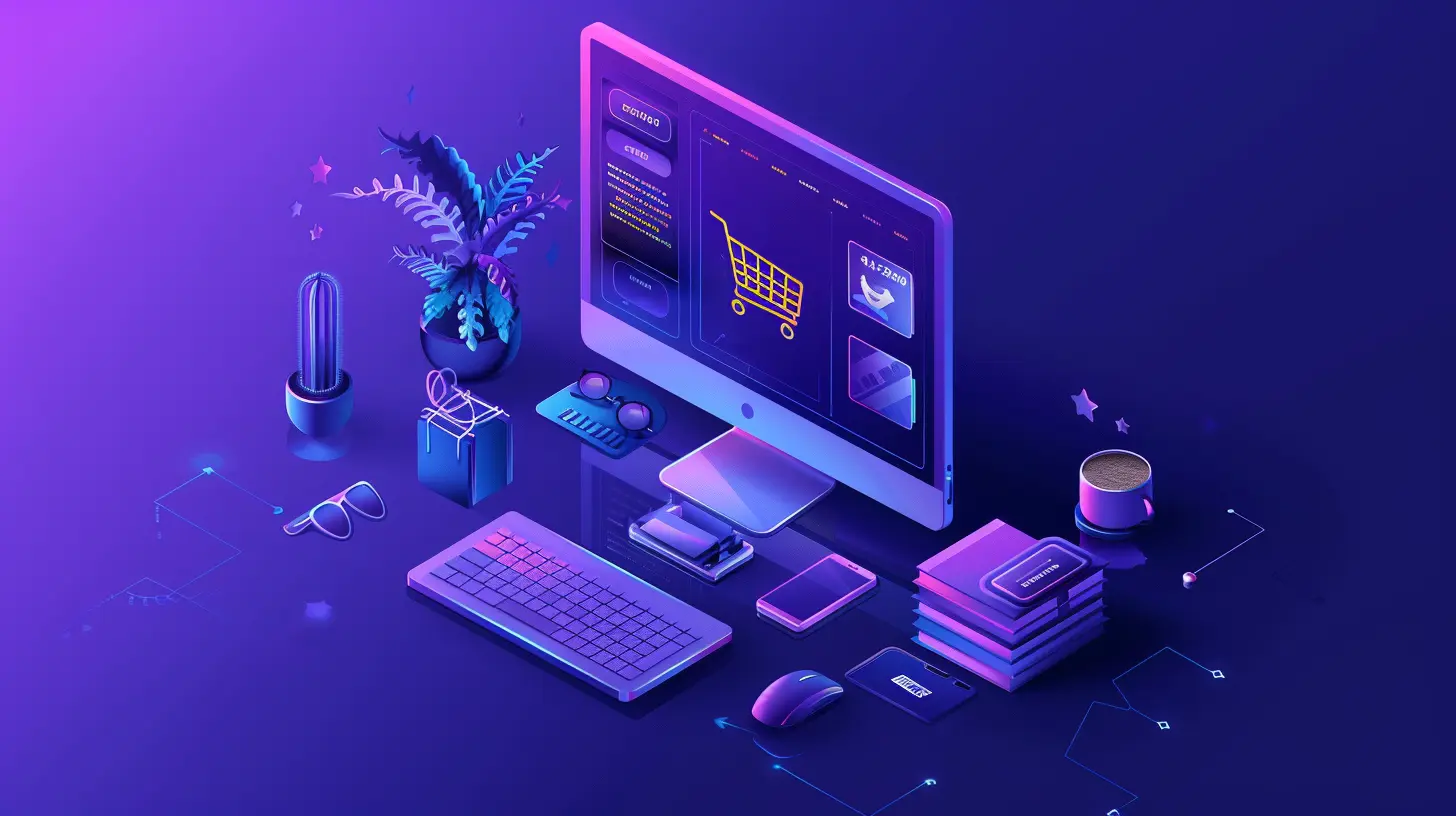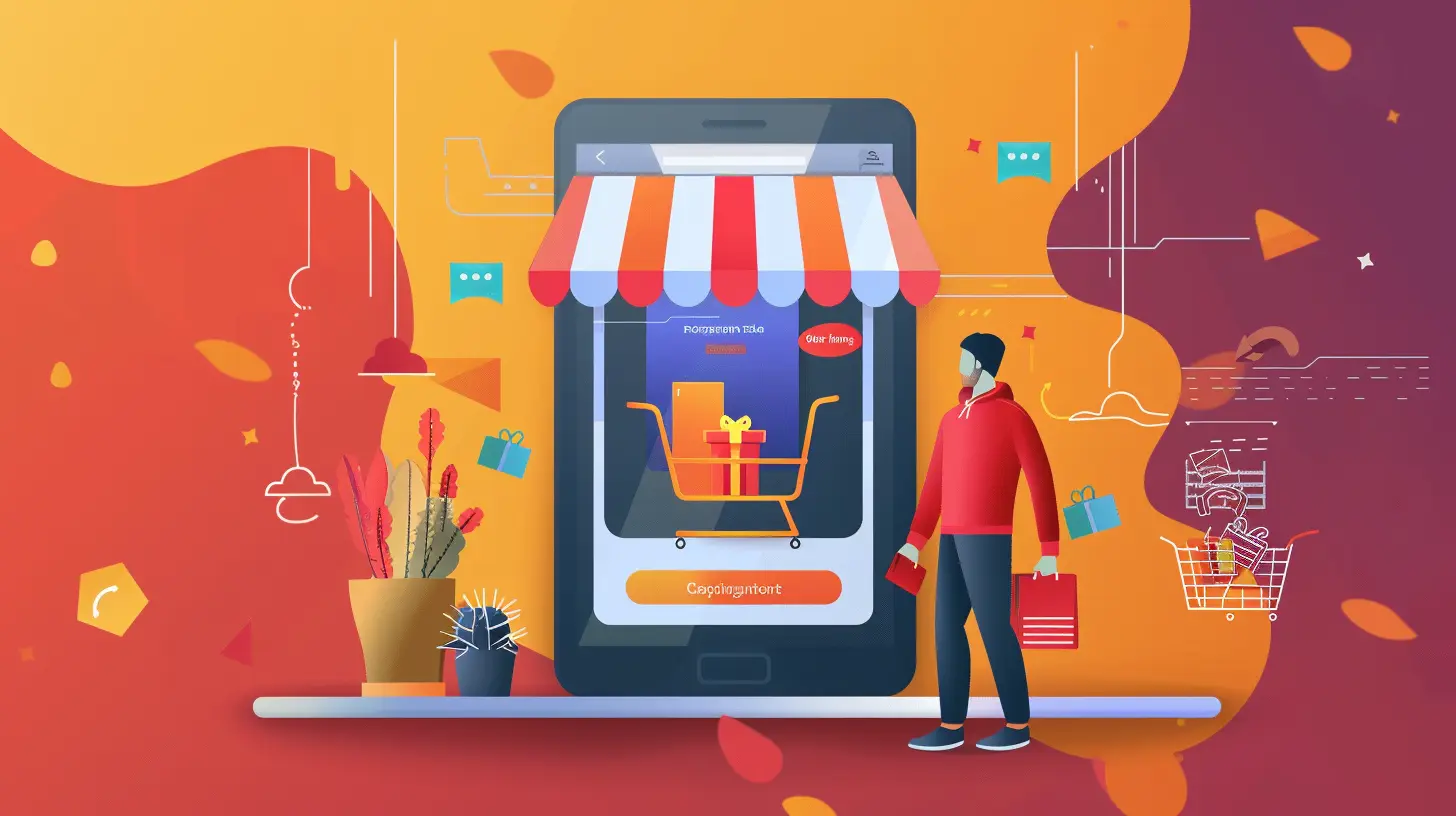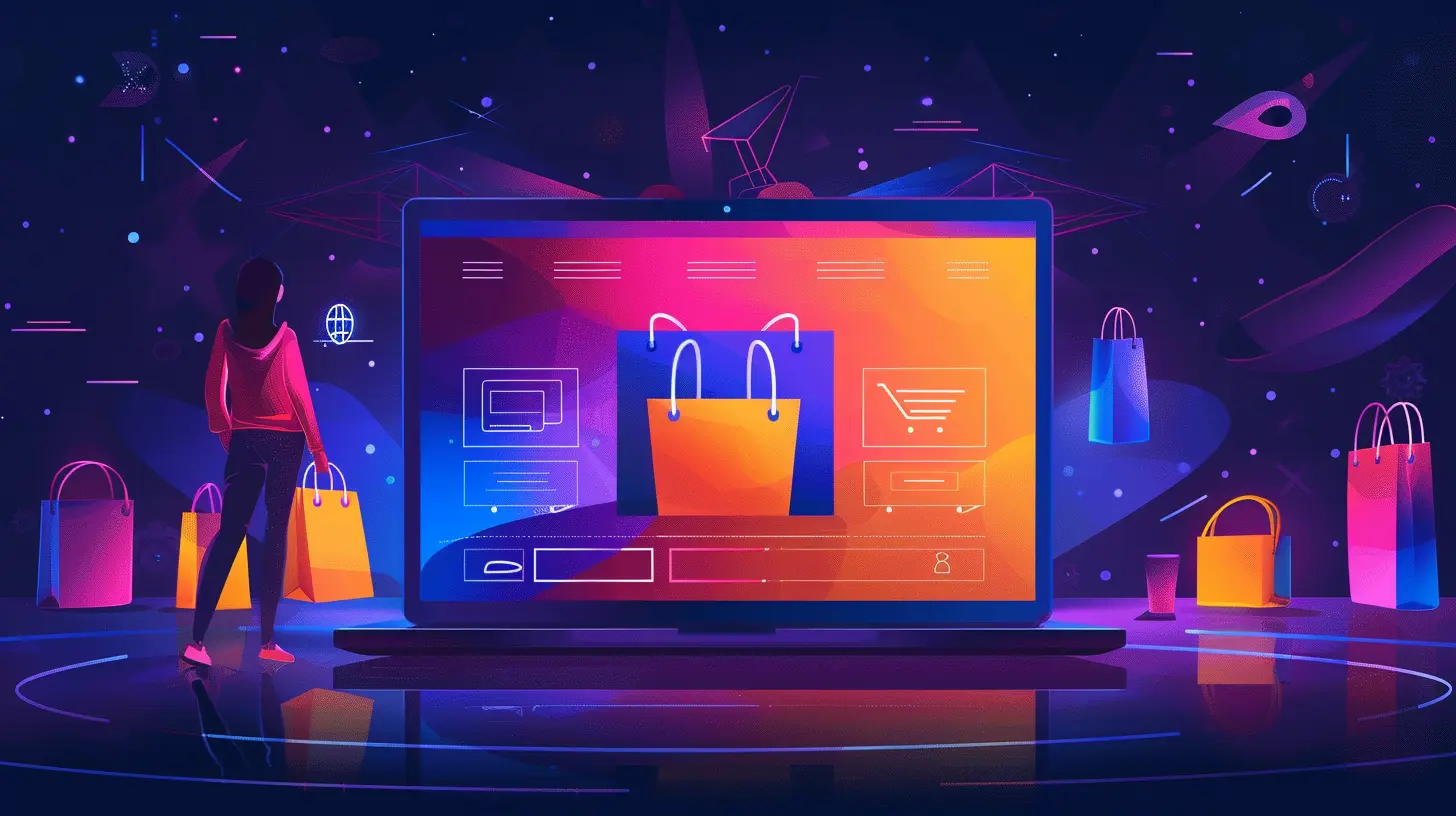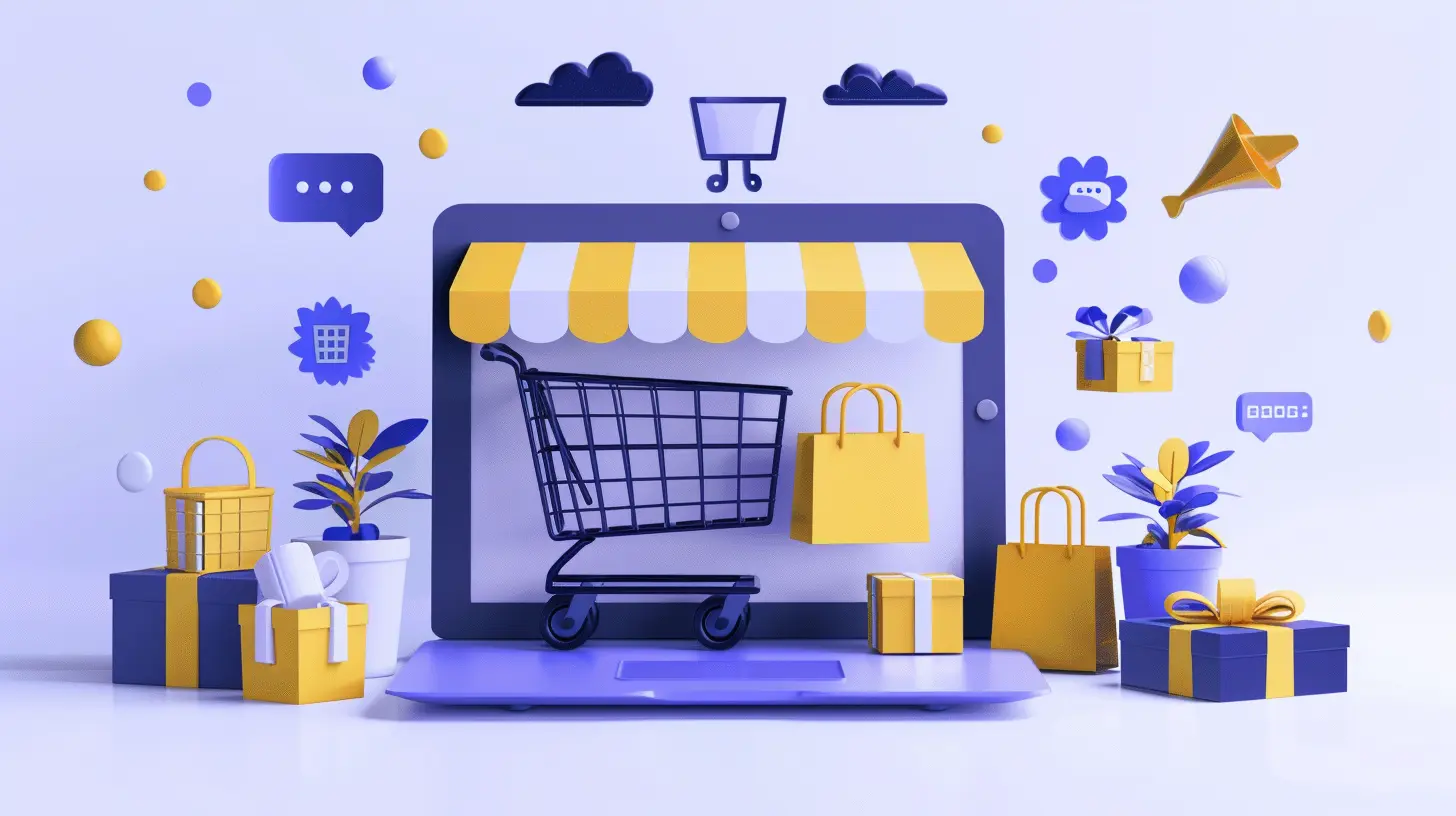How to Design a High-Converting E-Commerce Landing Page
2 September 2025
An e-commerce landing page can make or break your online business. It’s like the storefront of a physical store—the first thing a shopper sees. If it’s messy, confusing, or unappealing, they’ll walk away without buying anything. But if it’s well-designed, engaging, and persuasive, it can drive sales like crazy.
So, how do you create a landing page that actually converts visitors into customers? That’s exactly what we're going to dive into. Let’s break it down step by step. 
Why Does a High-Converting Landing Page Matter?
Imagine walking into a store where everything is cluttered, there's no clear sign of where to go, and the salesperson is nowhere to be found. Frustrating, right? That’s exactly what happens when an online shopping experience isn’t smooth.A well-optimized landing page:
- Grabs attention instantly
- Builds trust and credibility
- Guides visitors toward making a purchase
- Reduces bounce rates
- Improves return on ad spend
Simply put, a killer landing page means more sales. 
1. Keep It Clean and Simple
Simplicity wins in e-commerce design. When users land on your page, they should know exactly what to do without any distractions. A cluttered landing page confuses visitors, making them more likely to leave.Here’s how to keep it simple:
✅ Use a clean layout with plenty of white space✅ Limit the number of calls-to-action (CTAs)
✅ Make navigation intuitive
✅ Remove unnecessary elements that don’t contribute to conversions
For example, Apple’s product pages are famously minimalistic—just a product image, a short description, and a clear "Buy" button. That’s the power of simplicity. 
2. Use a Compelling Headline
Your headline is the first thing visitors see. It should instantly communicate what your product is and why they should care.A great headline should:
- Be clear and concise- Highlight the main benefit
- Create curiosity or urgency
Example: Instead of “Best Running Shoes,” try “Run Faster with Ultra-Light Shoes Designed for Champions!”
Don’t just describe your product—sell the benefit. 
3. Use High-Quality Images and Videos
Would you buy something online without seeing it first? Probably not. High-quality visuals are crucial in helping potential buyers trust your product.Best Practices for Product Images:
📸 Show multiple angles of the product📸 Use zoom features for close-up details
📸 Include lifestyle images (e.g., someone using the product)
📸 Keep the background clean and professional
Why Videos Work Even Better:
🎥 Demonstrate how the product works🎥 Explain benefits in a more engaging way
🎥 Boost trust and confidence in the product
Studies show that adding videos to your landing page can increase conversions by up to 86%. That’s huge!
4. Craft a Persuasive Product Description
Your product description should do more than just describe—it should sell.What to Include in a Winning Product Description:
✅ Focus on benefits, not just features (e.g., “Stay warm even in sub-zero temperatures” instead of “Made with thermal fabric”)✅ Use bullet points for key selling points
✅ Keep sentences short and easy to scan
✅ Infuse some personality with storytelling
Think of your description as a salesperson. Would a great salesperson just list features? Nope. They’d tell a compelling story about how the product will improve your life.
5. Optimize Your Call-to-Action (CTA)
Your CTA button is where conversions happen—it’s the moment a visitor decides to buy. If your CTA isn’t clear or compelling, you're losing sales.How to Create an Irresistible CTA:
✔ Use action-driven words (e.g., “Get Yours Now” instead of “Submit”)✔ Make it stand out with a contrasting color
✔ Keep it short and to the point (2-5 words is best)
✔ Place it prominently on the page
You want your CTA to be unmissable. Imagine someone scrolling while half-distracted—your CTA should still grab their attention.
6. Show Social Proof for Trust
People trust other people. If a product has great reviews, testimonials, or endorsements, customers feel more confident in buying it.Types of Social Proof to Include:
🌟 Customer reviews and ratings🌟 Testimonials from satisfied users
🌟 Trust badges (e.g., “100% Money-Back Guarantee”)
🌟 Media mentions (e.g., “As Seen On Forbes, TechCrunch”)
🌟 User-generated content (e.g., photos of real customers using the product)
The more proof you provide, the less doubt shoppers will have.
7. Speed Up Your Page Load Time
Nobody likes waiting for a slow website, especially shoppers. A slow-loading page can kill conversions. In fact, studies show that a 1-second delay in load time can reduce conversions by 7%.How to Speed Things Up:
🚀 Compress images without losing quality🚀 Use a fast and reliable hosting service
🚀 Minimize unnecessary plugins or scripts
🚀 Enable browser caching for faster repeat visits
A lightning-fast page keeps visitors engaged and reduces bounce rates.
8. Make Your Landing Page Mobile-Friendly
More than 70% of online shoppers use their mobile phones to browse and buy. If your landing page isn’t mobile-friendly, you’re leaving money on the table.Mobile Optimization Tips:
📱 Use a responsive design that adjusts to all screen sizes📱 Keep buttons big and easy to tap
📱 Make text readable without zooming in
📱 Ensure fast loading speed on mobile devices
Before launching your page, test it on different devices to make sure it looks and functions smoothly.
9. Offer a Money-Back Guarantee
One of the biggest reasons people hesitate to buy is fear—fear of wasting money or getting a bad product. A money-back guarantee eliminates that fear.When shoppers know they can return a product hassle-free, they feel safer making a purchase. And guess what? Most customers won’t actually return it—they just like knowing they can.
A simple “100% Satisfaction Guaranteed or Your Money Back” can work wonders.
10. A/B Test Everything
Even the best landing pages can be improved. A/B testing (also called split testing) helps you find what actually works with real data.You can test things like:
🔹 Different headlines
🔹 Various CTA button colors
🔹 Alternate images or video formats
🔹 Short vs. long product descriptions
Sometimes, even a small tweak—like changing a CTA from “Buy Now” to “Claim Your Discount”—can dramatically boost conversions.
Final Thoughts
Creating a high-converting e-commerce landing page isn’t about luck—it’s about strategy. By focusing on clean design, persuasive copy, strong visuals, and trust-building elements, you can turn more visitors into happy paying customers.Remember: Your landing page is your digital storefront. Make it one that shoppers can’t resist.
Now, go build that winning landing page—and watch your sales skyrocket!
all images in this post were generated using AI tools
Category:
E CommerceAuthor:

Susanna Erickson
Discussion
rate this article
1 comments
Rose Frye
Focus on user experience, clear calls-to-action, and trust signals.
September 15, 2025 at 12:58 PM

Susanna Erickson
Absolutely! Prioritizing user experience, incorporating clear calls-to-action, and building trust are essential for a high-converting e-commerce landing page. Thanks for the feedback!


